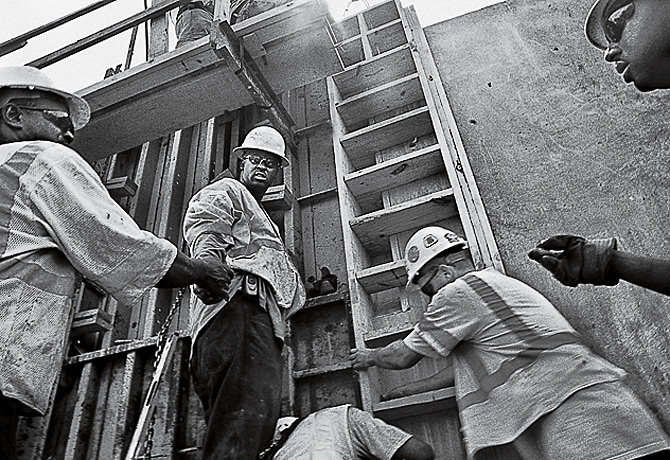
Workers from the Army Corps of Engineers finish the last part of the new flood wall at the 17th Street Canal in New Orleans, La., on July 2, 2007.
(8 of 8)
Can the system adapt? The Corps has announced "12 actions for change," but it's hard to find outsiders who believe that it has moved beyond its "teach Mother Nature a lesson" roots. It's still not a Corps of ecologists. And its projects are still a popular form of political swag for its enablers on Capitol Hill. The $20 billion Corps package also includes some modest reforms that would require more review of the agency's projects and mitigation of their environmental damage. But the Senate overwhelmingly rejected an effort to require the prioritization of Corps projects according to national need. And on Wednesday, the Bush Administration threatened to veto the "unaffordable" bill. Lieut. General Robert Van Antwerp, the new Corps commander, would like to see an independent commission recommending water projects outside the political process, like the one that advises military-base closures. But if New Orleans has to wait for an independent commission, it's probably time to invest in scuba gear. "We've got to break the cycle," Twilley says. "We've got to stop the political hacking. If we really want to go to the moon, we ought to go." The scientists make the task sound simple: build New Orleans 500-year protection and restore its natural protection. Have the courage to cause inconvenience and economic harm to some in the name of protecting all. After all, Katrina was harmful too. Moving 30 million tons of debris was pretty inconvenient. And the next Katrina is a question of when, not if.
Since Katrina, New Orleans has lost more than one-third of its population, and only two of St. Bernard Parish's 26 child-care centers have reopened. In the Lower Ninth Ward, floodwalls have been rebuilt and reinforced, but behind them stand blocks full of overgrown lots, where the remains of a gas meter or front step here or there provide the only evidence of the houses and lives washed away. "I look at this, and I think of the shortsighted people who crippled a great city," Dashiell says. She knows that city needs better hospitals and more jobs. But first, better levees and more wetlands. Otherwise, it's going to need an obituary.